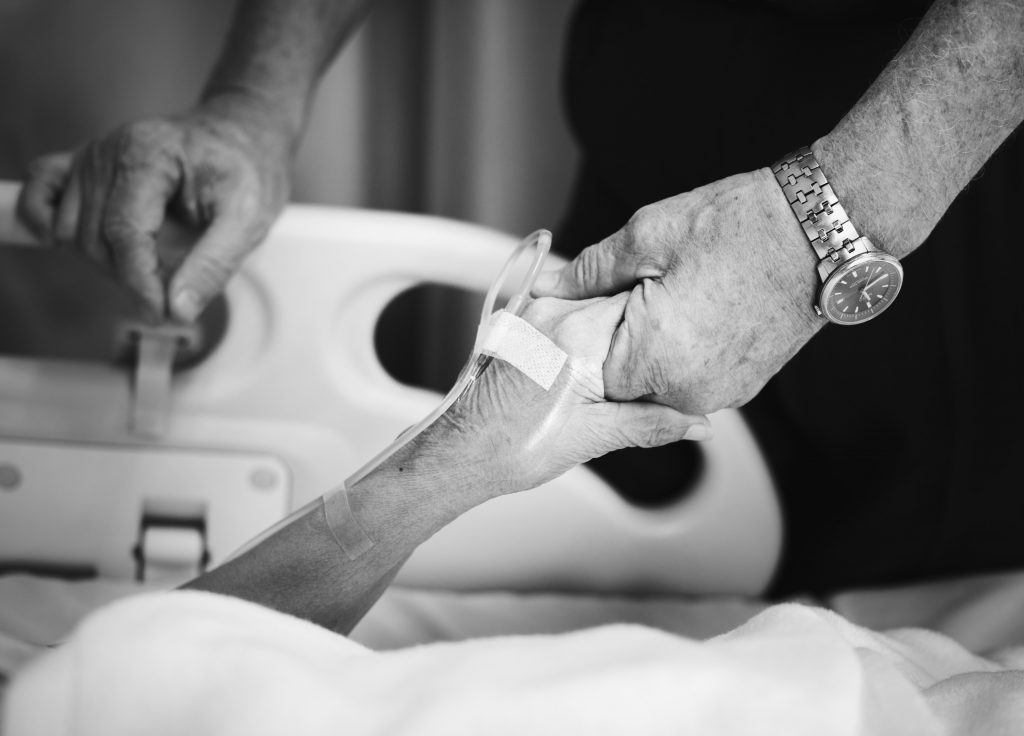When caring for a loved one with Alzheimer’s and Dementia, one of the scariest moments can be medical emergencies. This time can be highly stressful for caregivers and patients alike, and it’s important to have an idea of what to expect and how to best get through these times.
Risks of Hospital Visits
The risks for those over 65, even without a diagnosis of Alzheimer’s and Dementia, are numerous and startling. According to a study completed in 2017, elderly patients who are treated in the emergency department are at an elevated risk for disability within six months of their hospital visit. Another found that 20 percent of Medicare patients are often readmitted to the hospital within 30 days of being discharged from the emergency department or other hospital-related stays.

Keep in mind, this does not mean that, as a caregiver, you should not be sending your loved ones to the hospital. However, it is important to know what to expect and to make the transition of going back home as easy as possible.
Often, the reason for readmission and disability is due to poor planning and a lack of coordination with the professionals who may be caring for the patient. It’s difficult enough for professional caregivers to successfully navigate the transition, which means it is even more difficult if you have decided to care for your loved one on your own.
What to Expect
During an emergency visit or hospital stay, you will sit down with staff to discuss what care will look like and what will be needed to ensure that your loved one recovers fully. Make sure to ask questions and that you understand everything that the staff says is needed. It’s easy to walk out of those meetings overwhelmed with information, but if you stay the course, hospital staff can make sure that you are prepared for caring for your loved one after they have been discharged.
When your loved one has Alzheimer’s and Dementia, there are some other factors to think about when preparing for a hospital visit.:
Be prepared as the energy and tempo of a hospital can be disorienting for someone with Alzheimer’s and Dementia. Waking up in an unfamiliar place is going to be a concern and will require you to stay calm and reassure your loved one that everything is ok.
First, be sure to let the staff know that your loved one is suffering from dementia. This can be important in how the staff interacts with your loved one and keeps them calm during the process. Also, it is important that staff understands the level to which your loved one is functioning with dementia. It is best that you are able to answer all of their questions, rather than having them directed towards your loved one. Most hospitals and first responders are not well trained in managing a person with dementia so be extra vigilant in there presence.
If the person is going to stay overnight, try to have someone (i.e. friend, family member) stay with them in order to keep someone familiar around. This can lower your loved one’s stress levels and help them deal with the sudden shift in routine. Keep in mind, you do not have to go through this alone. Enlist the help of friends and family so that you can get through this too without having to be the 24-hour support system.
Be prepared as the energy and tempo of a hospital can be disorienting for someone with Alzheimer’s and Dementia. Waking up in an unfamiliar place is going to be a concern and will require you to stay calm and reassure your loved one that everything is ok. When doctor’s come in to perform tests or administer treatment, it’s important to stay even and help the doctor when you can. If something can wait and your loved one is having a bad reaction to new people and their new space, it’s ok to ask to wait. You are the one most knowledgeable about what your loved one can handle.
Our Solution: Telehealth!
At Cotter House Central Ohio, we have all of these same concerns about hospital visits, especially when it comes to transporting our residents to the hospital. Our goal is to make sure this happens as little as possible. To do this, we have a brand-new Telehealth platform that helps us monitor the condition of our residents and gives us access to some of the best minds in medicine 24/7.
The process is two-fold. First, we use non-invasive, wireless Bluetooth medical devices to get an extensive health screen and baseline for each resident. We use this information to monitor small changes in their vitals and biometrics. This monitoring can happen monthly or even daily depending on the need of the resident. As small changes occur, we are able to see them and help get our residents the care they need hopefully before a full hospital stay or emergency room visit is ever necessary. By being proactive, we are able to reduce the chances that one of our residents will need to go to the hospital and experience the stress and difficulty of hospital visits. Keeping our residents in our facilities means that the people that know your loved one best are the ones that are interacting and administering any medical needs.
The other important part of our Telehealth Platform is that we have video access 24/7 to our local physicians and other experts around the nation helping assess and suggest treatment options. This happens onsite and, in some cases, even in the suite your loved one calls home. We can get to the information we need without the hassles and danger of travel and keeping our residents in familiar surroundings.
The risks of hospital visits for seniors is well documented, and the risks increase for those with Alzheimer’s and Dementia. That’s why, at Cotter House Central Ohio, we have employed a Telehealth Platform to keep our residents safe in our community best possible.
